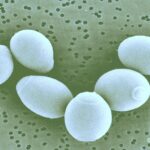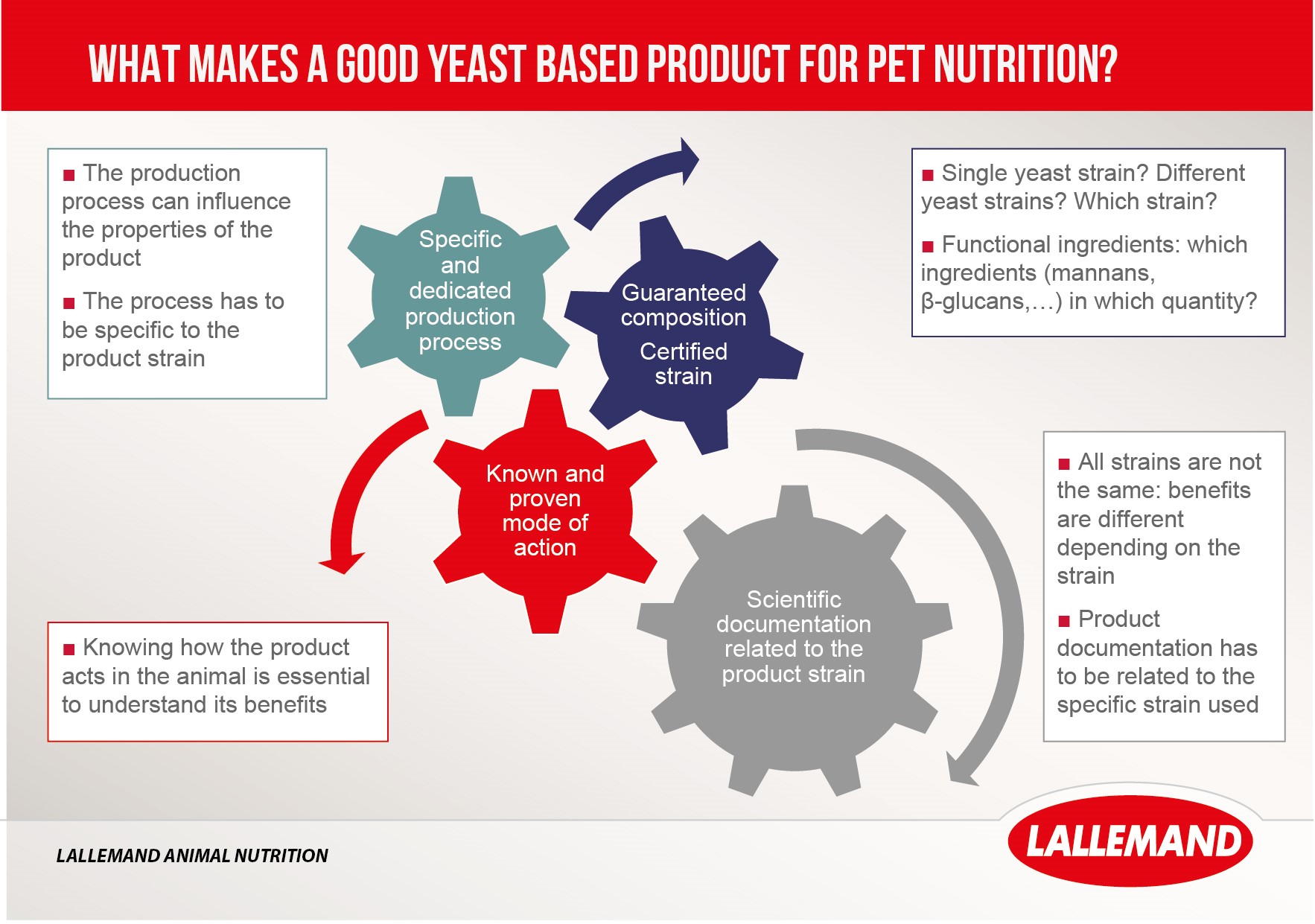News | Reading Time 3 minutes
Multiple benefits and applications of yeast and yeast derivatives for pet nutrition: A practical guide for nutritionists
4th Nordic Pet Food Seminar
At the 4th Nordic Pet Food Seminar in Prague, an event dedicated to pet health and well-being, Francesca Susca, Ph.D., DVM, Pet Development Manager at Lallemand Animal Nutrition, gave a lecture titled: “All you need to know about yeasts – Benefits and applications in petfood.” She shared a practical guide to help nutritionists select the right yeast product for the right application, concluding: “From a flavor enhancer to a source of nutrients and functional ingredients, yeast and yeast derivative products are versatile and natural ingredients to keep in mind when formulating food for our beloved pets.”

Yeast has been utilized as far back as ancient Egypt to leaven bread and ferment wine. Saccharomyces cerevisiae remains the most used organism in the food industry. Its exceptional fermentative and nutritional qualities make yeast a valuable source of ingredients for pet nutrition too. But not all yeast nor yeast products are equivalent.
Francesca Susca reviewed the multiple benefits and applications of yeast and yeast derivative products. She proposed a rational way to classify these products according to their composition, nutritional value, biological activities, regulatory status, as well as their production process, stressing that the production processes influence ingredient characteristics:
- Live yeast, or probiotics: Saccharomyces cerevisiae boulardii is the most documented and used probiotic yeast in human and positive results in dogs have been published, supporting beneficial effects in promoting digestive health.
- Whole cell inactive yeasts: Can be used as flavor enhancers or as a natural source of nutrients such as B vitamins, high quality protein and minerals. In addition, yeast can be enriched in vitamins or minerals, for instance selenium-enriched yeast is a source of highly bioavailable selenium (antioxidant and immune function).
- Yeast fractions: Yeast extracts are soluble portions of the organism that can be separated from the insoluble yeast cell walls:
- Yeast extracts are comprised of more than 60% proteins. They represent a valuable source of proteins, nutrients and minerals and can also be used as natural flavor enhancers.
- Yeast cell walls are rich in beta-glucans and mannan oligo saccharides, also called MOS, which are well known for their pathogen-binding and immune-modulation activities. They can contribute to microbiota balance and digestive well-being. Production processes have a great influence on the end-product qualities, the MOS contents and, hence, efficacy. In particular, yeast cell walls issued from a primary production process with a selected yeast strain should be preferable (compared to byproducts from brewery or distillery production), thanks to the specific and carefully controlled production process which ensures a consistent quality, purity and homogeneity of the final product.

For more information about yeast and Lallemand’s portfolio of microbial-based solutions for pet nutrition, visit https://lallemandanimalnutrition.com/en/europe/our-products/species/pet-nutrition/.
Published Oct 3, 2018 | Updated Feb 21, 2024